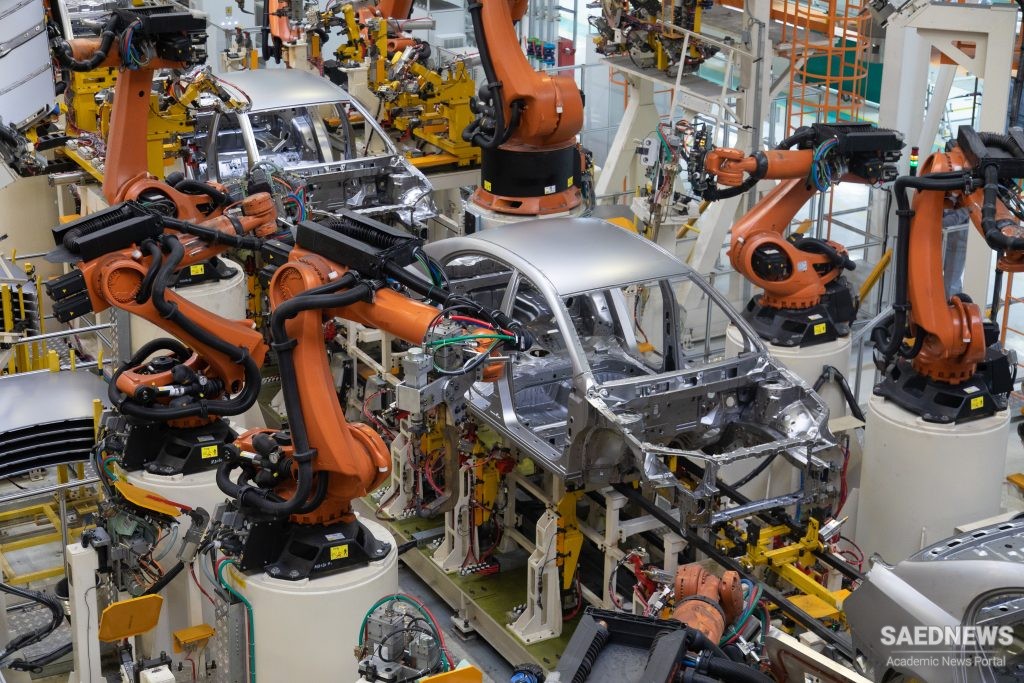The new economy is a global one in which capital, production, management, labor, markets, technology, and information are organized across national boundaries. Global foreign direct investment grew about eightfold from 1965 to 1995, and global export of goods and services nearly quadrupled in the same period. Globalization has relied, in part, on multinational firms but also increasingly on transnational networks of firms (including both multinationals and local firms). An example of how these four radical changes have come together to transform the economy is seen in the automobile industry. In 1977 it took about 35 person-hours of labor to assemble an automobile in the United States. New Japanese production techniques, based on technological developments and multiskilled teamwork, had brought that down to 19.1 hours by 1988. Just-in-time production and distribution techniques allowed car manufacturers to save money on inventory and warehousing, and customized, flexible global production and distribution in the 1980s gave Japanese companies an advantage over slower, more cumbersome U.S. companies (though U.S. companies eventually started to catch up). In the future, new scientific developments are expected to dramatically reduce the weight and thus engine size of cars, while increased computing power will make combustion and driving more intelligent, to the point where the value of a car will be better understood by seeing it as “chip with wheels” rather than wheels with chips. And the ability to competitively design, manufacture, market, and distribute such a product internationally will be, and already is, dependent on modern telecommunications, with executives, designers, managers, and sales people around the world consulting, collaborating, communicating, and sharing information via computermediated networks.


 Digital Technology, New Mode of Production and Emergence of Multiskilled Employees
Digital Technology, New Mode of Production and Emergence of Multiskilled Employees














































